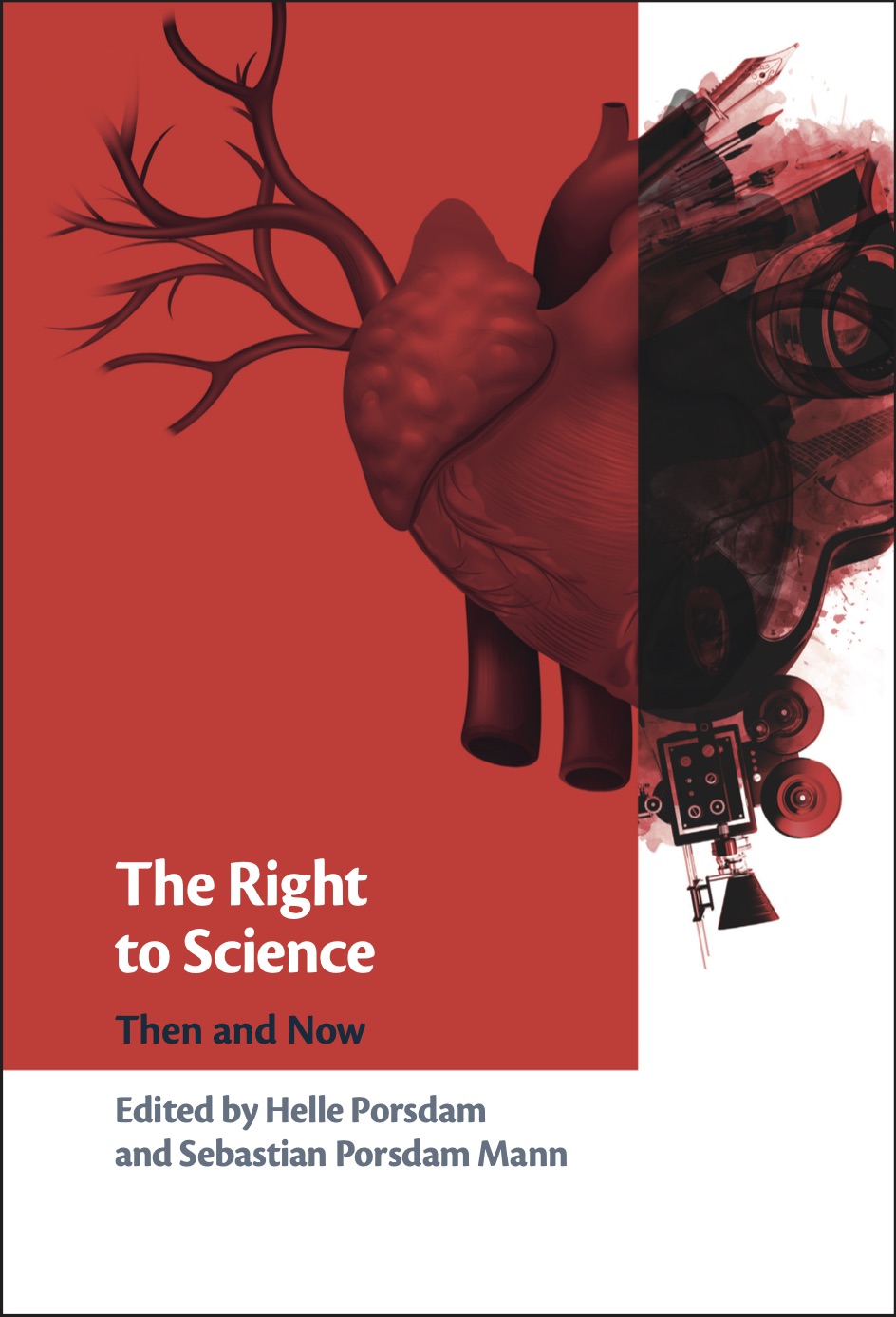| 3 Dec 2021 | 16:00 - 18:00 | Online | |
- Description
- The Book
Description
gloknos is thrilled to announce the launch of The Right to Science: Then and Now, edited by our long-time collaborators Helle Porsdam and Sebastian Porsdam Mann.
We all have a human right to enjoy the benefits of scientific progress (the Right to Science [RtS]). The right has its origins in Article 27 of the United Nation’s 1948 Universal Declaration of Human Rights, which was adopted in the wake of World War II. In 1966, the UN turned these commitments into binding obligations under international law. The implication is that, just as governments are expected to respect the rights to, say, freedom of speech and due process, so they must also adopt measures to respect and ensure the RtS. The existence of this right is important for researchers and society. It adds a legal and moral dimension to a range of fundamental issues, including scientific freedom, funding, and policy, as well as access to data, materials, and knowledge. Yet, despite its potential for furthering science and human rights causes, the RtS has not received the attention it deserves.
Speakers
- Helle Porsdam (University of Copenhagen)
- Yvonne Donders (University of Amsterdam)
- Inanna Hamati-Ataya (University of Cambridge)
- Sebastian Porsdam Mann (University of Oxford)
- Rumiana Yotova (University of Cambridge)
- Stjepan Orešković (University of Zagreb)
- Christos Lynteris (University of St Andrews)
- Christine Mitchell (Harvard University)
Attendance is free but spaces may be limited, so please email to reserve a space in the Zoom audience. Please be aware that we may take a recording of this event, which may include any questions and responses delivered by the audience.
gloknos is initially funded for 5 years by the European Research Council through a Consolidator Grant awarded to Dr Inanna Hamati-Ataya for her project ARTEFACT (2017-2022). ARTEFACT is funded by the European Research Council under the European Union’s Horizon 2020 Framework Programme for Research and Innovation (ERC grant agreement no. 724451). For information about gloknos or ARTEFACT please contact the administrator in the first instance.

The Book

That everyone has a human right to enjoy the benefits of the progress of science and its applications comes as a surprise to many. Nevertheless, this right is pertinent to numerous issues at the intersection of science and society: open access; ‘dual use’ science; access to ownership and dissemination of data, knowledge, methods and the affordances and applications thereof; as well as the role of international co-operation, human dignity and other human rights in relation to science and its products. As we advance towards superintelligence, quantum computing, drone swarms, and life-extension technology, serious policy decisions will be made at the national and international levels. The human right to science provides an ideal tool to do so, backed up as it is by international law, political heft, and normative weight. This book is the first sustained attempt at turning this wonder of foresight into an actionable and justiciable right.
Contents and Contributors
- Mikel Mancisidor:
The dawning of a right: science and the universal declaration of human rights (1941–1948) - Cesare P R Romano:
The origins of the right to science: the American declaration on the rights and duties of man, - Aurora Plomer:
IP rights and human rights: what history tells us and why it matters - Ivan Lind Christensen:
Fostering a love of truth: conceptions of science in UNESCO’s early years - Roberto Andorno:
The right to science and the evolution of scientific integrity - Farida Shaheed & Andrew Mazibrada:
On the right to science as a cultural human right - Yvonne Donders & Konstantinos Tarraras:
Mainstreaming science and human rights in UNESCO - Mylène Bidault:
Considering the right to enjoy the benefits of scientific progress and its applications as a cultural right: a change in perspective - Valerie J Bradley:
Implications of the right to science for people with disabilities - Stjepan Oreskovic & Sebastian Porsdam Mann:
Science in the times of SARS-CoV-19 - Ranga Yogeshwar:
Fight the fear with the facts! - Jessica M. Wyndham, Margaret W. Vitullo, Rebecca Everly, Teresa M. Stoepler & Nathaniel Weisenberg:
The right to science – from principle to practice and the role of national science academies, - Sebastian Porsdam Mann, Yvonne Donders & Helle Porsdam:
The right to science in practice: a proposed test in four stages - Mike Frick and Gisa Dang:
The right to science: a practical tool for advancing global health equity and promoting the human rights of people with tuberculosis - Andrea Boggio & Brian Gran:
A proposal for indicators of the human right to science - Christine Mitchel:
Epilogue
This title is also available as Open Access on Cambridge Core.

